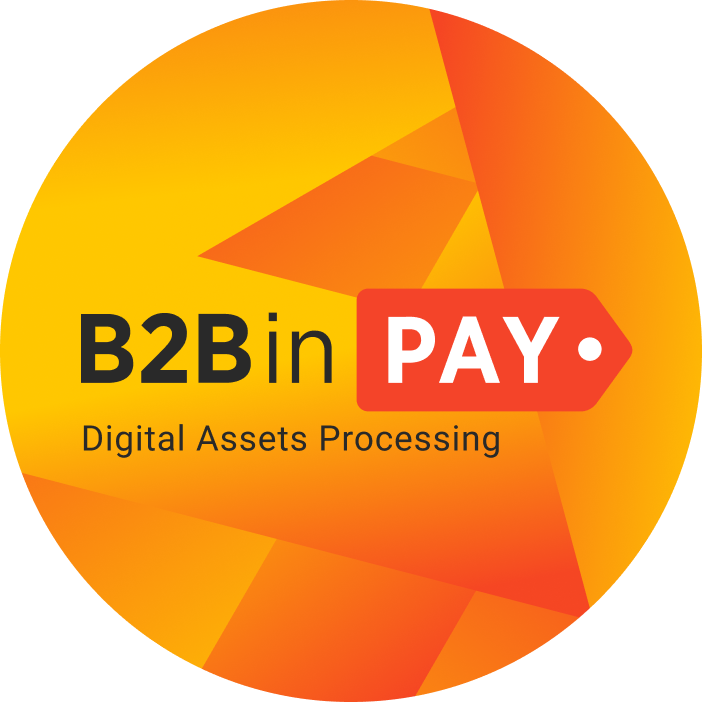Today, the financial system around the world is undergoing major changes. With the advent of blockchain technology and then countless cryptocurrency projects, including the notorious Bitcoin and Ethereum, our usual notion of a payment and settlement system has become obsolete. Cryptocurrency and everything associated with it has become a real technological breakthrough of our century, causing a stir among both ordinary people and large corporations.
Despite the fact that the concept of blockchain is relatively new and has not yet been fully explored, this technology already allows us to perform our daily operations with previously unimaginable ease and speed. Speaking about the pioneer of the crypto industry - Bitcoin, these days it has become not only one of the most popular methods of payment for goods and services in commerce but also the basis for the creation of several other important technologies such as cryptocurrency payment gateways, NFTs, Metaverse, Defi and many others, thereby getting the title of the most attractive investment tool.
In this article, we will talk about what cryptocurrency is, what the risks are associated with investing in this tool, its pros and cons, as well as how to invest in crypto to avoid losses correctly. In the end, you will learn how and where it can be stored.
What is Cryptocurrency?
A cryptocurrency is a digital currency that operates as a medium of exchange over a computer network and is not supported or maintained by any central organization, like a bank or government. At the moment, there are already more than ten thousand different crypto projects, among which the most popular (and most valuable) cryptocurrencies are Bitcoin (BTC), Ethereum (ETH), Cardano (ADA), etc.
Since any cryptocurrency is a peer-to-peer payment service, it does not depend on financial institutions like banks to do crypto payment processing. Even though any crypto asset can be used as a regular currency, many view them primarily as an investment instrument.
In contrast to classical money like the US dollar, cryptocurrencies only exist digitally. Even though there are no physical cryptocurrency coins or banknotes, some of them are frequently referred to as "coins" (or "tokens").
It is important to note that cryptocurrency is fully decentralized, meaning there is no authority that creates, distributes, or regulates the cryptocurrency on the market. This is the opposite of the traditional fiat currencies like the US dollar, which is issued by the American government. At the same time, cryptocurrencies such as Bitcoin have no borders or restrictions and are available to anyone with an Internet connection.
However, if there is no central authority to regulate cryptocurrency, how can we say that this technology is safe? How do you protect against people who try to create fake tokens or hack payment gateways?
The term "cryptocurrency" was formed from the word cryptography, an encryption technology that provides security and protection of information in computer systems. A properly designed peer-to-peer computer network accounts for all cryptocurrency transactions within a single distributed database or ledger, which is called a blockchain. In essence, blockchain allows digital information to be recorded and distributed without being edited. In other words, the blockchain functions as the basis for the creation of immutable ledgers that cannot be altered, deleted or destroyed in any way.
Is Crypto Safe?
Due to the decentralized nature of the blockchain network, crypto payment processing is usually highly secure. Blockchain technology is inherently safe and allows you to quickly make any cryptocurrency operations, including buying, exchanging, and storing, providing direct access to one of the most innovative investment methods today.
However, most financial analysts recommend keeping cryptocurrency as a relatively small percentage of all your assets in your portfolio when it comes to investing. To put it another way, investing in cryptocurrency is safe, but you shouldn't invest only in cryptocurrency. It's because the market is extremely risky as a whole. In addition, cryptocurrencies are relatively new, so there is a high degree of volatility associated with them. Many experts in the investment world agree that a portfolio should always be as diversified as possible and consist of bonds, stocks, ETFs, cryptocurrencies, etc. But even then, there is no guarantee that the investment strategy you choose will be successful. One of the most telling examples in this context is the 2008 market crash when even such seemingly safe investment instruments as real estate and equity index funds collapsed by tens of percent of their value.
Let's look at cryptocurrency from all sides and first detail the benefits it has.
Advantages of Cryptocurrency
Blockchain technology, in general, has a range of strong advantages. For example, online data can be stolen and altered in traditional centralized systems, but in blockchain based payment systems, wallet or payment fraud is virtually impossible. It takes too much power to hack the system because, for the sake of one cell of information, you would have to hack every computer that stores it. The high-security level is achieved because each block's information is encrypted, and the blocks are linked together in a chain.
The blockchain system has some other features which guarantee the security of transactions:
- Unique addresses are used to transfer funds: the system itself generates them for each transaction;
- Transactions are open and transparent, but it is impossible to link the data to a specific person and his location;
- Transactions are made instantly; they cannot be intercepted;
- Address authenticity is verified by encryption keys.
Despite the many benefits that cryptocurrency has, especially in terms of security, it is also worth noting that there are certain risks associated with it.
Risks of Cryptocurrency
- Volatility: The price of cryptocurrencies can change rapidly and significantly due to market volatility. You can reduce this risk by creating a diversified portfolio and investing in cryptocurrencies for the long term (rather than trying to profit from short-term cryptocurrency trading).
- Lost keys: A private key is used to secure cryptocurrency (passcodes, specifically). However, a lost or stolen private key makes it impossible to access your crypto. Utilizing a reputable Bitcoin wallet when transferring funds with a Bitcoin payment gateway or storing your cryptocurrency with a reputable exchange are two ways to reduce this risk.
- Investment hype: Cryptocurrencies can be subject to a lot of hype, which can provoke a sharp rise (and then fall) in their prices. This is especially true for little-known tokens and "meme" coins such as Dogecoin. This risk can be mitigated by sticking to well-established assets, including Ethereum and Bitcoin.
- Phishing: Cybercriminals use phishing attacks to obtain passwords or crypto owners' private keys. Do not open suspicious emails or click unknown links to avoid such problems.
- Limited history: Since crypto is a relatively new market concept, there are certain risks associated with not being able to look at historical data to understand how a given cryptocurrency will behave in the event of unforeseen events, such as a 2008-style market crash.
- Theft and scams: Cryptocurrency owners are often targeted by thieves and fraudsters. The best way to reduce this risk is not to spread the word that you own cryptocurrency.
- Regulation: Although, at the moment, cryptocurrency is not regulated in any way by world governments, there is a risk that things may change, and governments will take measures to control them.
Most of these risks may be reduced by taking some straightforward safety measures. Below, we will detail the best methods of investing in cryptocurrencies.
Cryptocurrency Scams
Scams come in many forms, and according to Federal Trade Commission (FTC) data, they have become more prevalent recently. Fortunately, you can avoid these scams by taking several preventive steps. It begins with being aware of potential dangers.
These are some of the most typical scams in the cryptocurrency industry.
- "Giveaway" scams. Scammers impersonate famous people or celebrities on social media, claiming to conduct cryptocurrency "giveaways." Often they ask people to send cryptocurrency to a specific address (usually to confirm "trust"), claiming they will double it or give them large prizes.
- "Pump and dump" scams. In this case, a group of people starts buying vast amounts of a particular token, pushing its price up. Other cryptocurrency investors, hoping for a quick profit, pounce on them, and then that group sells all the assets, causing a massive price collapse.
- Blackmail attempts. Scammers send out emails or messages claiming to have sensitive information about you and demanding that you send cryptocurrency to their address — otherwise, they will expose sensitive information.
How to avoid crypto scams
You can take the following actions to protect yourself from fraud and scams:
- Continually use well-known coins like Bitcoin and Ethereum. Before investing in a new crypto startup, do a detailed investigation on this project and check out the creators' backgrounds.
- Select only trustworthy Bitcoin providers/exchanges. It's crucial to purchase cryptocurrency from a reliable exchange, like Binance or KuCoin.
- Always check all required information while working with cryptocurrency merchant services such as CoinBase, BitPay, etc. Moreover, there are plenty of unverified companies providing crypto payment processing services that are potential scams.
You can better prepare yourself for all types of fraud and spam by reading up on scams in general.
How to Invest in Crypto Safely
When investing in cryptocurrencies, you should consider a few simple things that will help you do it safely and efficiently.
- Invest only with tried-and-true exchanges (Binance, KuCoin, Gemini, etc.)
- Consider a reliable cryptocurrency wallet to keep your coins secure. Also, cold wallets are recommended if you are dealing with large amounts of crypto.
- Unless you are an experienced cryptocurrency user, stick to well-known coins like BTC and ETH.
- Whatever service you work with, whether it's a crypto exchange or your personal wallet, use strong passwords to enhance security.
- Be sure to use two-factor authentication (2FA) for an extra security layer.
- Always keep your password and private cryptographic keys in a secure place where third parties have no access.
- Diversify your portfolio by buying cryptocurrency, stocks, bonds, and funds.
The fundamental steps for purchasing cryptocurrencies are simple and clear. You open an account with a cryptocurrency exchange, make a deposit to your wallet, and then you can buy or sell any cryptocurrencies you wish. It's also worth noting that every time you buy or sell cryptocurrency, transaction fees will vary depending on the exchange. After purchasing cryptocurrency, you must choose the safest method for holding it.
Now, let's walk through how you can do that.
How To Store Crypto Safely
The two main methods for storing cryptocurrencies are exchanges and personal wallets.
Cryptographic transactions are protected by a combination of public and private keys. Your public key is distributed from time to time to make transactions, for example, through the blockchain payment gateway. However, on the other hand, your private keys must always remain private. Any unauthorized person possessing your public and private keys has full access to your coins and can transfer them to any other cryptocurrency address.
Therefore, it is imperative to secure your private keys. This can be achieved by storing coins on a secure exchange (using a strong password) or using a wallet.
- Storing crypto on Exchanges
For those new to the world of cryptocurrency, the easiest method is to leave your cryptocurrency for safekeeping with a reliable exchange or custodian. When you buy cryptocurrency through an exchange such as KuCoin or Binance, it is automatically stored on that exchange.
In a technical sense, the exchange keeps your private keys. Your assets (and private keys) will stay on the exchange unless you decide to move cryptocurrency from the exchange to your personal wallet. This is essentially the "default" setting.
You can transfer crypto from the exchange to another person or your own cryptocurrency wallet at any time. The exchange is responsible for your assets' security, so your cryptocurrency could be lost if the exchange is hacked or compromised. However, reputable exchanges have top-notch security and invest millions of dollars in preventing hacks.
- Storing crypto with your own wallet
Cryptocurrency can be moved to your personal crypto wallet instead of being kept on an exchange. As a result, you now bear the bulk of the exchange's security obligations. So this method works for those aware of cryptocurrency and has made significant investments.
- Hardware (cold) wallets: These are devices that allow you to store cryptocurrency offline. They often look like small USB drives and are considered the most secure way to store cryptocurrency. These devices are also called "cold wallets" because they are not connected to the Internet.
- Software (hot) wallets: These are programs, applications, or websites that store cryptocurrency online. They can also be in the form of web applications (browser extensions such as MetaMask), desktop applications (such as Electrum), or mobile applications (such as the Blockchain.com app).
The Bottom Line
Investing in cryptocurrencies can be safe if specific rules are followed to protect your assets. However, it is essential to remember that no investment instrument guarantees profits. Even though cryptocurrency markets have the potential for high returns, volatility is typically higher than in bonds or other financial instruments. In comparison with stocks, crypto may be considered to be a more risky but also more rewarding investment.
Lastly, it's up to you to determine whether cryptocurrency fits your risk profile and overall investment portfolio. Cryptocurrency comes with its own set of risks. However, this type of investment can provide great returns when they are part of a diversified portfolio.
Author: Arthur Azizov, CEO and Founder of B2BinPay
Arthur Azizov is a FinTech and blockchain expert with over 10 years of experience and an MBA from the Financial University.
B2BinPay is a cryptocurrency payment provider offering solutions for both Merchant and Enterprise Clients. B2BinPay allows you to send, receive, store, exchange and accept crypto payments online safely, securely and cost-effectively across the globe in a matter of minutes and enjoy a wide range of benefits including low processing fees, real-time balance/transaction history, downloadable reports, secure checkout.



